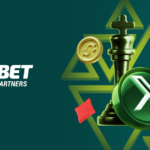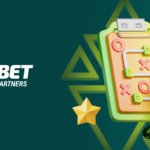Building Trust in Online Gambling: Key Drivers, Strategies, and the Finnish Market Transition
26.09.2025
Building Trust in Online Gambling: Key Drivers, Strategies, and the Finnish Market Transition
26.09.2025Trust now defines success in modern gambling markets. As competition grows, players judge operators not by headline bonuses but by clear signals such as fast payouts, transparent rules, and reliable protection. An online casino that delivers on these essentials secures loyalty, while one that fails risks losing customers almost immediately.
This reality pushes operators to demonstrate credibility rather than just claim it. Licensing and security frameworks create the backbone, while responsible play tools add another layer of assurance. When these strengths are communicated through focused digital marketing, they connect directly with the audience and turn reliability into sustainable growth in iGaming.
Why Trust Has Become the Cornerstone of Online Gambling Success
Trust separates operators that grow from those that fade. As online gambling became mainstream, players shifted focus from flashy bonuses to safety. A payout delayed by 24 hours sparks frustration, while a KYC check finished in 3 minutes builds confidence. Because users now expect banking-level reliability, building trust has become the foundation of every strong brand.
Competition reinforces this shift. With most operators offering similar games and promotions, credibility decides where players stay. A site that pays withdrawals in 12 hours naturally earns more loyalty than one taking 48. Clear bonus rules prevent disputes, and vague terms quickly frustrate. Consistent communication strengthens confidence, while silence pushes players toward competitors.
Transparency and Consumer Protection as the Foundation of Credibility
Players cannot verify technical systems themselves, so they search for visible honesty. A license number displayed clearly creates immediate reassurance, while published withdrawal windows, 12 hours for e-wallets and up to 48 for cards. set fair expectations. Wagering explained in numbers eliminates confusion before deposits even happen.
Equally important, consumer protection shows that an operator values long-term safety. Deposit caps starting at €20, session limits beginning at 1 hour, and exclusion tools ranging from 24 hours to 12 months prove that safety comes first. These protections communicate accountability and create lasting confidence that players can depend on.
Reputation, Reliability, and Player Experience as Long-Term Assets
Reputation grows only when promises match results repeatedly. Instant deposits, payouts processed within hours, and support replies in under 30 minutes send strong signals of reliability. Players quickly share these results with others, and positive stories spread faster than advertisements.
Reliability also becomes clear in hard numbers. Uptime of 99.9 percent, bonuses credited within seconds, and cashier tools that never freeze all reinforce consistency. These traits make up your business identity and keep your customers coming back. As time goes on, credibility becomes the most important factor in keeping customers and growing.
Core Drivers That Shape Consumer Confidence in Gambling Platforms
Confidence in gambling relies on systems that visibly prove fairness and safety. Licences show legal status, certifications confirm technical integrity, and security standards safeguard both funds and data. Combined with responsible gambling tools, these elements demonstrate that accountability is built into the service.
Consistency adds another layer of trust. Instant deposits, withdrawals within expected windows, and clear dispute handling signal reliability. Metrics such as uptime rates or transaction speeds become benchmarks that players compare across operators, shaping credibility more effectively than any promotion.
Regulatory Integrity and Independent Oversight Mechanisms
Regulation anchors confidence by creating rules that extend beyond marketing claims. Players can confirm company details instantly through public registries, which protects against misuse of brand identity. Independent audits verify random number generators, payout ratios, and version updates. External dispute services provide escalation paths when customer support cannot resolve issues. Segregated accounts keep player balances separate from operational funds. Finally, ongoing anti-money laundering checks, from sanctions screening to transaction monitoring, demonstrate continuous oversight.
Industry Certifications, Fair Play Guarantees, and Security Standards
Certifications condense complex protections into recognizable trust signals. These include:
- ISO 27001, confirming strict controls over information security.
- PCI DSS, securing card data in deposit and withdrawal processes.
- GLI or eCOGRA seals, validating random outcomes and RTP accuracy.
Together with certifications, operators add clarity through fair play pages. Numeric examples, like a €50 bonus needing 30x wagering, reduce confusion. This openness cuts disputes and strengthens your reputation in market comparisons.
Responsible Gambling Tools That Promote Safe Player Engagement
Responsible gambling measures reinforce the idea that safety is embedded in the service. These measures include: deposit caps starting at €20 per day, time alerts after 60 or 120 minutes, exclusion options lasting 24 hours to 12 months, and reality checks summarizing deposits, wins, and losses in plain numbers. Each safeguard provides practical control that builds confidence. For your audience, these tools prove that the operator values sustainability and accountability over short-term profit.
Strategic Importance of Trust for Operators in a Competitive Market
For operators facing intense competition, credibility is the factor that defines long-term success. When players see fairness in payouts, quick transactions, and transparent rules, they choose to return without relying on constant incentives. This consistent loyalty creates a stronger preference for online gambling with dependable brands and helps cut acquisition costs at the same time.
Fewer disputes mean smoother relations with payment providers and regulators, cutting financial exposure. With that stability, operators can reinvest resources into improving services, creating an advantage over competitors who depend solely on bonuses. Ultimately, trust functions as both protection and growth driver in the market.
Differentiation Through Ethical Practices and Transparency
Ethical conduct transforms into practical actions players recognize. For example, operators can:
- Publish bonus examples with full wagering math.
- List payout times by method and update delays in real time.
- Provide escalation paths with ADR contact details.
- Remove misleading creatives within hours once identified.
These actions build consistency across channels and show that communication matches delivery, which strengthens trust at every touchpoint.
Building Reputation as Sustainable Competitive Advantage
Reputation develops when reliability repeats over time. Operators that confirm withdrawals instantly and display live transaction status show accountability in practice. Public responses to complaints within 24 hours demonstrate care, while incident reports within 60 minutes add transparency. Onboarding must remain efficient, and deposit or session limits should stay one tap away for your players. With these habits in place, reputation turns into a long-term asset that requires no constant promotion, only consistent delivery.
Finland as a Case Study of Market Transformation and Player Behavior
Finland is set to reshape its gambling sector by replacing the Veikkaus monopoly with a licensing system. Licence applications are expected in 2026, with market entry starting in 2027. A newly formed supervisory authority will handle compliance and hold powers to fine, suspend, or block operators, keeping the transition structured and stable.
The financial model supports this approach. Plans include a 22 percent tax on gross gaming revenue, application fees of about €50,000, and annual supervisory charges ranging from €4,000 to €430,000 based on revenue. These requirements are designed to welcome strong operators while limiting participation from underprepared companies.
From Veikkaus Monopoly to a Multi-License System
The new system limits Veikkaus’ exclusive role and introduces broader competition. Commercial B2C operators will be able to apply for licences in 2026, with the first launches expected the following year. Software providers must also obtain a separate B2B licence by 2028, ensuring suppliers meet uniform standards. Enforcement will include payment restrictions and site blocking against unlicensed operators. A public register of approved companies will be maintained, helping players identify legal and reliable services in the Finnish market.
Finnish Players as Rational, Digitally Advanced, and Highly Engaged Consumers
Consumers in Finland have a reputation for making rational choices, supported by high digital literacy. They expect rapid verification, ideally within minutes, and withdrawals processed within 12–48 hours. Mobile-first design is non-negotiable, as smartphones remain the most common access point. Clear communication in Finnish is essential, since players value precise terms with no ambiguity. Because users compare providers based on transparency and reliability, operators must deliver consistent service to build long-term trust with your players.
Local Media, Advertising, and Cultural Adaptation as Keys to Market Entry
A professional marketing agency often becomes the starting point for operators entering Finland, guiding campaigns through strict local rules and cultural nuances. Clear Finnish-language communication and numeric bonus examples make promotions easier to understand, while cooperation with trusted publishers and broadcasters adds credibility. By adapting campaigns to fit cultural expectations, operators strengthen their position and avoid costly mistakes. In the end, social bubbles helps amplify these efforts by spreading reliable messages within close communities and building long-term trust.
Tools, Technologies, and Trends Shaping the Future of Trust in Gambling
Technology now defines credibility in gambling services. Players expect deposits that appear within 10 seconds and withdrawals processed in 12–24 hours. Fraud detection that blocks suspicious logins instantly also acts as a visible safeguard. Operators must make sure these standards are clear, because technical reliability has become the strongest signal of trust.
At the same time, new formats change how services are delivered. Instant transfers, biometric access, and wearable alerts are shaping expectations. Virtual and augmented reality extend play into new formats, while analytics support safer interaction. With competition rising, these innovations show how trust and efficiency can work together.
Artificial Intelligence and Data Analytics for Personalization and Fraud Prevention
Artificial intelligence improves trust by working in real time:
- Fraud models detect device mismatches in under 2 seconds.
- Login anomalies, such as five failed attempts in 30 seconds, trigger blocks.
- Analytics adjust lobbies by showing stable-return games to an at-risk person gambling.
These systems cut down on arguments and show players that oversight protects both money and identity without making things harder.
Secure Payments, Risk Management, and Responsible Gambling Frameworks
Payments remain the most visible test of reliability. Deposits clear instantly, while e-wallet withdrawals take about 12 hours and card payouts up to 48. Risk systems review transactions over €5,000, high-velocity activity, or suspicious locations before release. Responsible gambling frameworks link directly, prompting reviews when weekly deposits exceed set thresholds. Sharing these standards openly through social media helps players understand safeguards and trust the operator’s intent.
Emerging Technologies (VR, AR, Wearables) Driving New Player Experiences
New interfaces add both variety and control:
- VR tables recreate live play, with session timers in the corner of the screen.
- AR overlays project leaderboards or odds in real-world settings.
- Wearables verify identity through biometrics, send reminders after 60 minutes, and track activity spikes in real time.
By combining novelty with safeguards, these technologies reassure players that every upgrade comes with practical protections.
Summary Insights – Trust as the Core Currency of Market Expansion
Growth follows credibility that players can verify quickly. First, step one be legitimate with visible licensing and public registries. Then, publish operational benchmarks players feel daily. Use 12–24 hour withdrawals, 99.9% uptime, and dispute ratios below 0.9 percent. As markets open, these numbers guide comparisons and unlock steady expansion.
After launch, reliability must compound across every channel. Start with fast fixes and transparent status notes within 60 minutes. Reply to public complaints inside 24 hours and show resolved outcomes. Next, align claims and product limits before every campaign. When needed, a trusted digital marketing agency can audit creatives and keep messaging compliant. Finally, step two maintain your reputation by reporting payout times, RG usage, and issuing backlogs regularly.
Recent posts

Twitter (X) Betting Communities – Growth Tactics for 2026
In 2026, betting communities on X operate under different rules than a few years ago. Speed, clarity, and interaction now outweigh raw posting volume. A…

How to Create Long-Form Betting Guides That Rank for Years – A 2026 Evergreen SEO Playbook
Betting websites compete in one of the most demanding search environments online. Users expect accuracy, structure, and clarity before they trust a page. Google applies…

E-E-A-T for Betting Websites – Practical Implementation Guide for Ranking and Trust in 2025
Betting SEO entered a different phase in 2025. Visibility now depends on how clearly pages prove reliability, accuracy, and accountability. Search systems assess content more…

